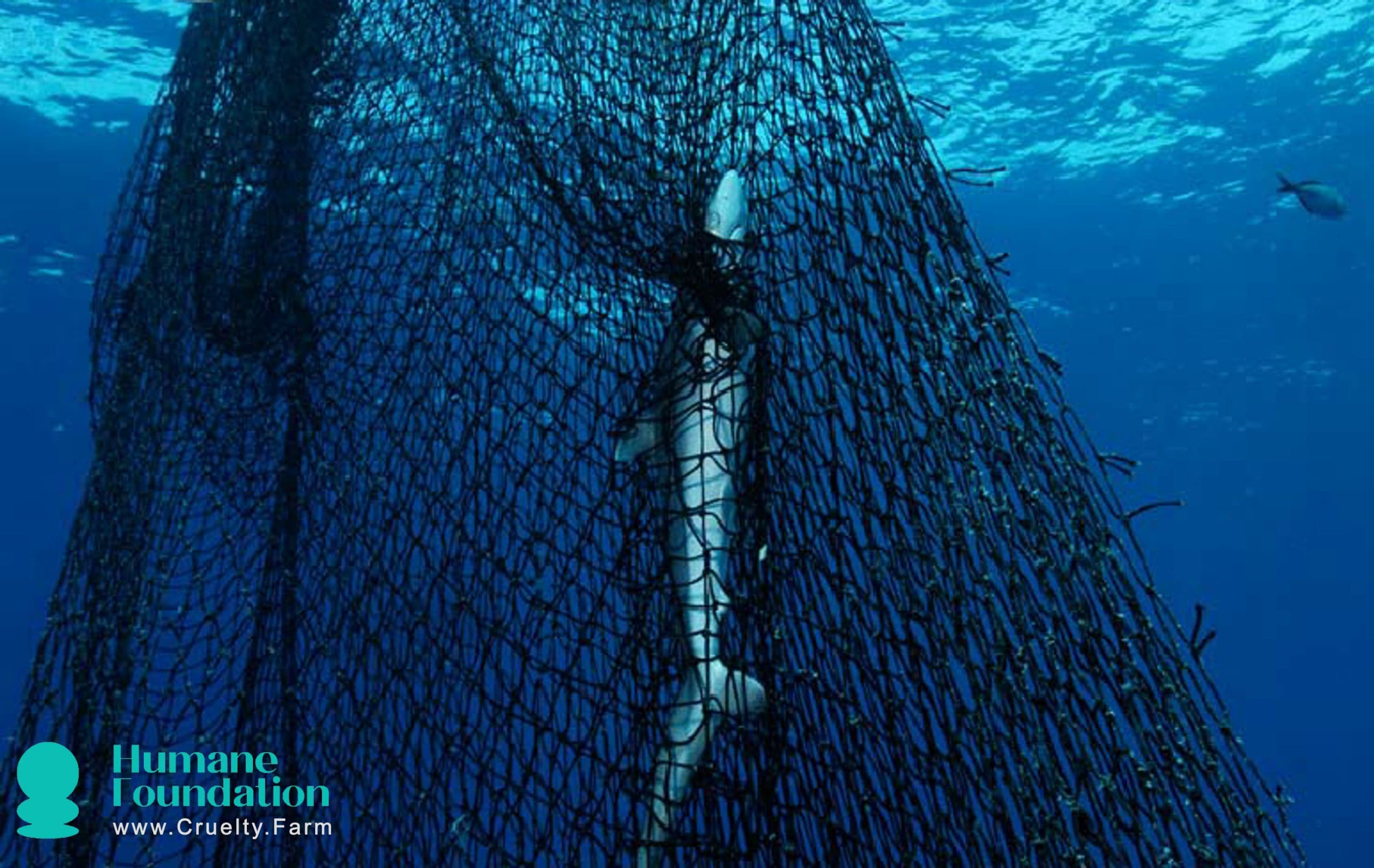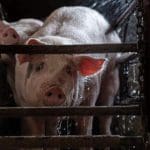Seafood has long been regarded as a delectable delicacy enjoyed by people all over the world. From sushi to fish and chips, the global demand for seafood continues to increase, with the industry generating billions of dollars each year. However, beyond the appetizing taste and economic benefits, lies a dark side that is often overlooked by consumers. While many are aware of the harsh conditions and cruelty faced by land animals in factory farms, the plight of aquatic animals in the seafood industry remains largely unseen. From being caught in massive fishing nets to being subjected to inhumane slaughter methods, the treatment of aquatic animals has raised concerns among animal rights activists and conservationists. In recent years, there has been a growing push for aquatic animal rights, shedding light on the exploitation and suffering of these creatures. In this article, we will delve into the unseen cruelty behind your seafood and explore the growing movement towards establishing rights for aquatic animals.

Global demand driving aquatic exploitation
The growing global demand for seafood has led to a concerning increase in aquatic exploitation worldwide. As consumers continue to crave an array of marine delicacies, fishing practices have intensified to meet the high market demand. However, this surge in fishing activities, coupled with the lack of effective regulations and monitoring, has had detrimental consequences for aquatic ecosystems and the welfare of marine animals. Overfishing, destructive fishing methods, and habitat destruction are just a few examples of the unsustainable practices that have become prevalent in the industry.
Farmed fish face severe mistreatment
The aquaculture industry, while initially seen as a solution to overfishing, has unfortunately brought to light a dark reality – farmed fish face severe mistreatment. The conditions in which these fish are raised often fall far short of providing them with a life free from suffering. Crowded and cramped enclosures, unsanitary living conditions, and the routine use of antibiotics and chemicals are just some of the issues plaguing the aquaculture sector. The focus on maximizing profits and meeting high demand has led to a disregard for the well-being and welfare of these aquatic animals. It is imperative that we acknowledge and address the hidden cruelty behind our seafood choices and advocate for the rights of these farmed fish, pushing for improved regulations and practices that prioritize their welfare and quality of life.
Seafood industry lacks animal welfare
The current state of the seafood industry reveals a concerning lack of focus on animal welfare. While consumers may often be unaware of the realities behind their seafood choices, it is important to shed light on the unseen cruelty that persists. Fish and other aquatic animals are frequently subjected to a range of distressing conditions throughout the industry, from capture to transportation and eventual processing. These practices commonly involve overcrowded and unsanitary environments, causing immense stress and suffering for these sentient beings. It is crucial that we advocate for the rights of aquatic animals and push for stricter regulations and improved practices within the seafood industry.
Sustainable practices still harm animals
While sustainable practices are often seen as a positive step towards minimizing the environmental impact of human activities, it is crucial to acknowledge that these practices can still harm animals. The focus on sustainability often centers around reducing carbon emissions, conserving resources, and promoting biodiversity, all of which are commendable goals. However, in the quest for sustainability, the welfare of individual animals can sometimes be overlooked or compromised. For instance, in the fishing industry, sustainable fishing methods may prioritize the longevity of fish populations, but the methods used can still cause harm and suffering to the targeted species and other unintended bycatch. Similarly, in agriculture, practices such as organic farming may prioritize soil health and biodiversity preservation, but the use of pesticides and other techniques can still have adverse effects on wildlife, including insects, birds, and small mammals. Therefore, it is vital to recognize that while sustainable practices are a step in the right direction, we must continue to strive for greater consideration of animal welfare within these systems. By integrating a comprehensive approach that not only focuses on environmental sustainability but also prioritizes the well-being of individual animals, we can work towards a more holistic and compassionate future for all living beings.
Consumer awareness can drive change
It is evident that consumer awareness plays a vital role in driving change when it comes to issues surrounding the unseen cruelty behind seafood production and the push for aquatic animal rights. By educating themselves about the ethical implications of their choices, consumers have the power to make informed decisions and demand more sustainable and humane practices from the industry. As consumers become more aware of the environmental and animal welfare impacts associated with certain fishing and farming methods, they can actively seek out alternatives that prioritize the well-being of aquatic animals. Ultimately, consumer awareness not only has the potential to influence individual choices and behaviors but also to encourage systemic change within the seafood industry, leading to a more ethical and compassionate approach to aquatic animal rights.
Activists fighting for animal rights
The movement advocating for animal rights has gained significant momentum in recent years, with activists tirelessly working to raise awareness and combat the injustices inflicted upon animals. These dedicated individuals understand that animals deserve to be treated with compassion and respect, and they tirelessly campaign for the end of animal cruelty in various industries, including factory farming, animal testing, and entertainment. Through peaceful protests, lobbying efforts, and education initiatives, activists strive to expose the harsh realities animals face and promote ethical alternatives. Their unwavering dedication and passion for animal rights are instrumental in fostering a more compassionate and sustainable world for all sentient beings.
















































